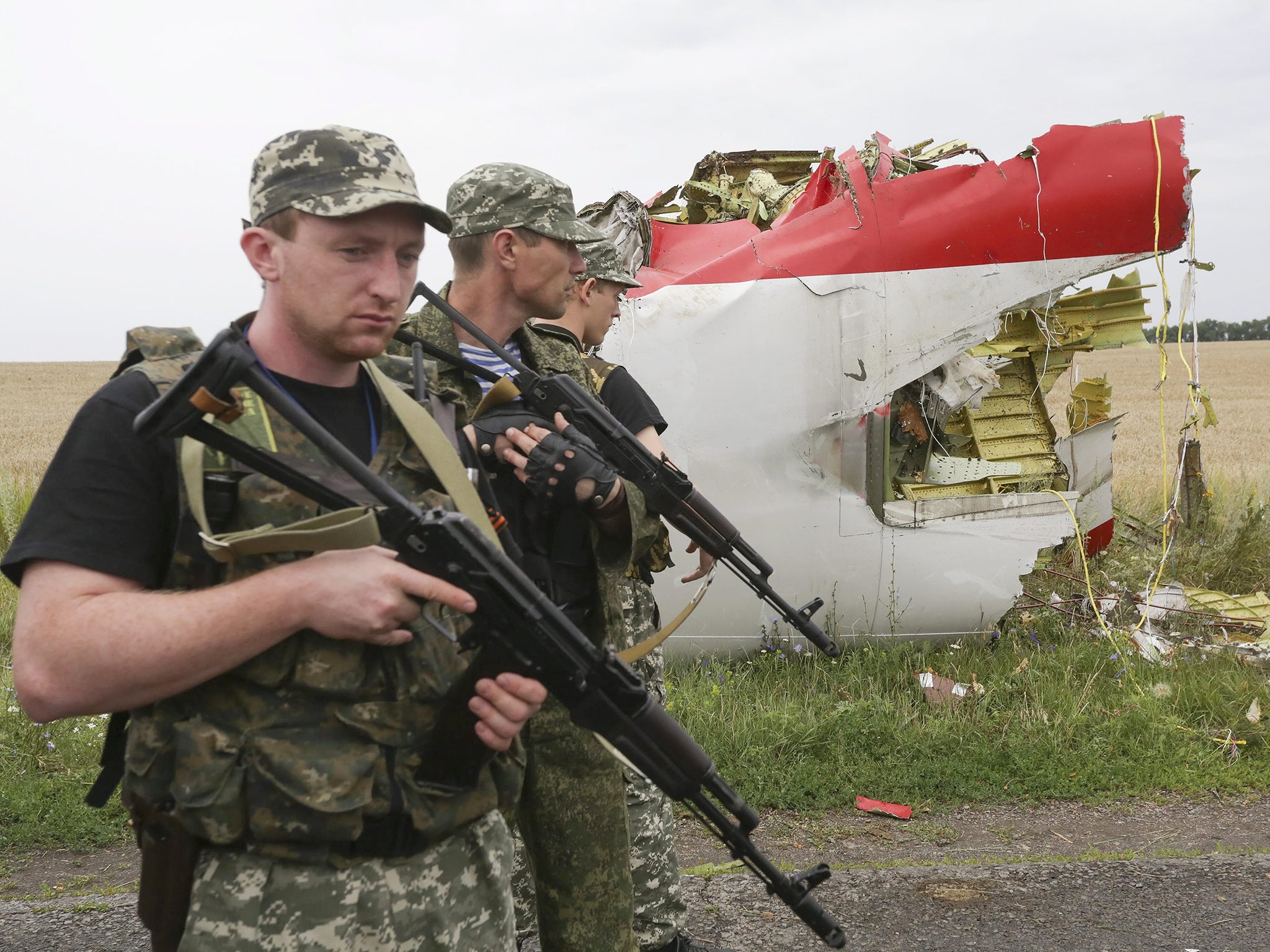Malaysia Airlines MH17 crash: Collateral damage is inevitable in the chaos of proxy war
The Americans and the Europeans are not going to go to war with Russia for Ukraine


Your support helps us to tell the story
From reproductive rights to climate change to Big Tech, The Independent is on the ground when the story is developing. Whether it's investigating the financials of Elon Musk's pro-Trump PAC or producing our latest documentary, 'The A Word', which shines a light on the American women fighting for reproductive rights, we know how important it is to parse out the facts from the messaging.
At such a critical moment in US history, we need reporters on the ground. Your donation allows us to keep sending journalists to speak to both sides of the story.
The Independent is trusted by Americans across the entire political spectrum. And unlike many other quality news outlets, we choose not to lock Americans out of our reporting and analysis with paywalls. We believe quality journalism should be available to everyone, paid for by those who can afford it.
Your support makes all the difference.We live in an era in which great military powers do not want to confront each other directly so they operate through local proxies. This has the advantage that Russia was not openly intervening with its own troops in eastern Ukraine but could influence events on the ground by operating through heavily armed separatists whose exact relationship with the Russian security services could be kept murky and responsibility for their actions could be denied.
Nevertheless, it is clear from the intercepted phone call made 20 minutes after the Malaysian airliner had crashed that it is officers of the Russian armed forces who are calling the shots. The Ukrainian security service says that the call is between Igor Bezler, who it says is a Russian intelligence officer and a leading commander of the Donetsk People’s Republic, and Colonel Vasili Geranin in the intelligence department of the Russian armed forces. Other phone calls indicate that the plane was shot down by a Cossack detachment based at Chernukhino – even if the self-proclaimed leader of the so-called Donetsk People’s Republic in eastern Ukraine, Alexander Borodai, has traded accusations with Kiev, claiming it was regular Ukrainian forces that were responsible for downing the plane.
It is a little strange that such damaging conversations should be taking place on open phone lines. But supposing these phone calls are verified, then they underline that command of separatist military formations is exercised by Russian security services. The advantage of using proxies is that it is possible to deny responsibility for what happened, but the disadvantage is that it is much more likely that a horrendous accident will occur.
The US and its allies face a similar danger in Iraq and Syria. A small number of shoulder-launched Chinese-made anti-aircraft missiles have found their way into the hands of the rebels in Syria. But even this is enough to frighten some airlines away from using Baghdad International Airport, because these weapons might now be in possession of the Islamic State of Iraq and the Levant (Isis), whatever the identity of the original recipients.
In the case of Ukraine it has always been in the interests of Russia to blur exactly how far behind the pro-Russian rebel forces in Ukraine the Russian armed forces were standing. At one point there were 40,000 Russian troops across the border, though some of these have been redeployed. The separatists were always well armed and have popular support in the industrial towns of the Donbas, the Russian-speaking industrial and mining area. It has always been propagandistic and misleading for Western politicians and media to pretend that those opposed to the government in Kiev are a small group of dissidents. In reality every election in Ukraine since the breakup of the Soviet Union and independence showed the country evenly divided between pro and anti-Russian parties.
The separatists have for some months demonstrably had the ability to use sophisticated weapons, as was shown by the shooting down of three Ukrainian helicopters over a month ago. In the event of a Ukrainian army assault, the separatists could be reinforced with more heavy weapons and, if necessary, by Russian “volunteers” or special forces, more or less disguised.
It was always a dangerous game. There were a number of overriding military facts. The most important of these is that the Americans and the Europeans are not going to go to war with Russia for Ukraine. All the well-publicised military exercises should not conceal this and it may be that the Ukrainian government has been over-encouraged by rhetorical declarations of support from Nato. It was never likely that the Russians would allow Ukrainian forces to carry out the military conquest of pro-Russian cities in the east without a military response.
The Russians evidently had decided to counter Ukrainian control of the air over separatist-held areas in the east. An Su-25 fighter and an An-26 transport plane were shot down on Monday and Wednesday, making it all the more amazing that commercial flights were still being routed over a war zone in which missiles had just been used.
Ukrainian and American officials say that the Malaysian airliner was hit by a missile, possibly an SA-11 Gadfly, a vehicle-mounted system of four surface-to-air missiles that can destroy high-performance aircraft or cruise missiles up to 72,000ft. Whether the separatists operated alone or in combination with Russian air defences remains a matter of dispute. What is not in dispute is the chronic danger of a slow-burning crisis in Ukraine in which the local allies of the West, in the shape of the government in Kiev, and the pro-Russian separatists in east Ukraine are both likely to overplay their hands.
Join our commenting forum
Join thought-provoking conversations, follow other Independent readers and see their replies
Comments